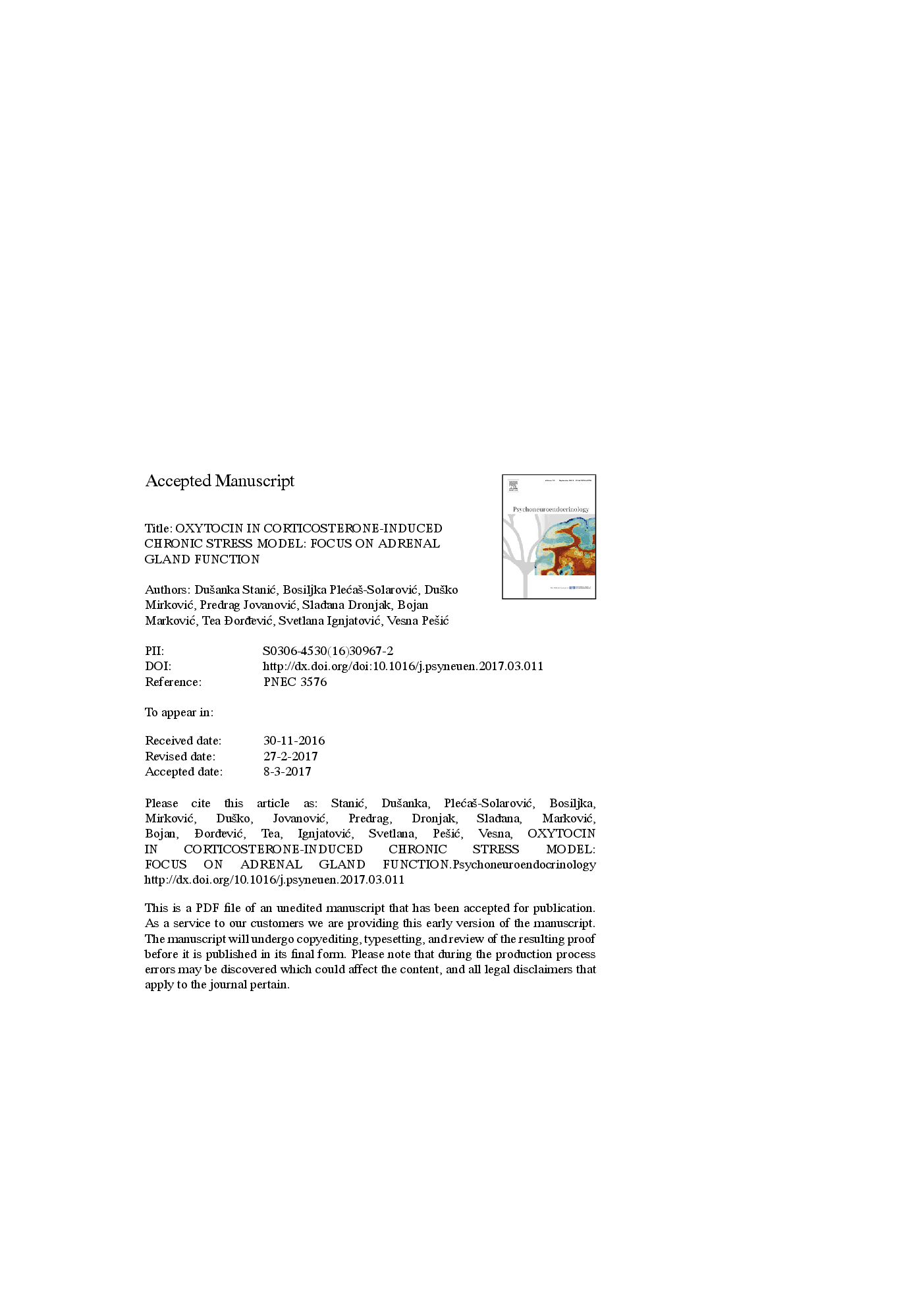ترجمه فارسی عنوان مقاله
اکسی توسین در مدل استرس مزمن ناشی از کورتیکواسترول: تمرکز بر عملکرد غده فوق کلیه
عنوان انگلیسی
Oxytocin in corticosterone-induced chronic stress model: Focus on adrenal gland function
| کد مقاله | سال انتشار | تعداد صفحات مقاله انگلیسی |
|---|---|---|
| 154857 | 2017 | 39 صفحه PDF |
منبع

Publisher : Elsevier - Science Direct (الزویر - ساینس دایرکت)
Journal : Psychoneuroendocrinology, Volume 80, June 2017, Pages 137-146

